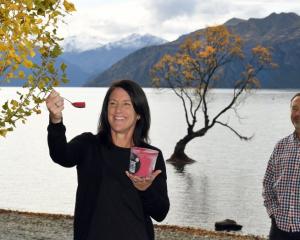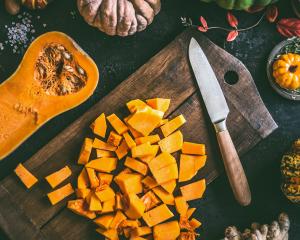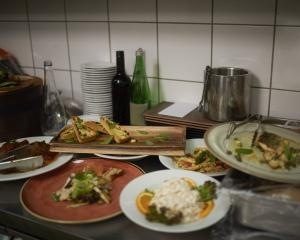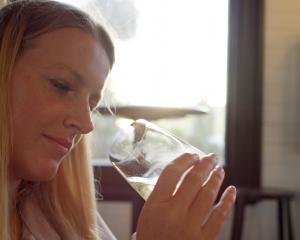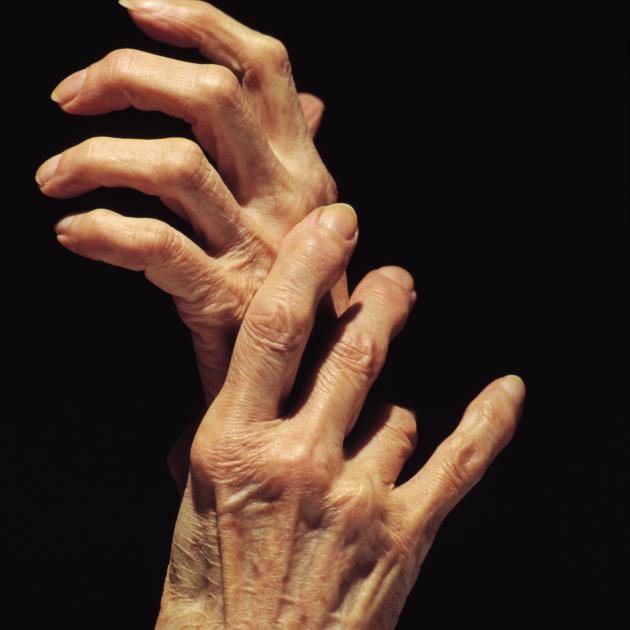
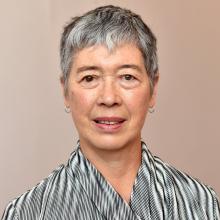
This can happen at any chronological age and these people are more likely to suffer from malnutrition than healthy older people, she says.
Many people in the fourth age don’t eat enough nutritious food so become even more frail as they lose muscle mass. They might no longer be capable or motivated to prepare meals for themselves, especially if they lived alone. The isolation of eating by oneself had an impact on the type of food they prepared - quick and easy, which could mean higher in fat, or, conversely, they might not feel like preparing a meal and just fill up on tea and toast or biscuits.
Older people might also have medical issues that caused problems swallowing or chewing or even tasting food, she said.
“In my practice I saw people admitted to rest-homes in a malnourished state because they were not able to provide suitable food for themselves. A Massey University study found close to 93% of new admissions to residential aged care were malnourished,” Dr MacDonell said.
She was involved in another study looking at people who had been in aged care for longer than 12 weeks. They’d come in underweight and malnourished, but with a regular supply of food and snacks between meals, their weight would increase and the risk of malnutrition would drop.
“It does show our rest-homes are doing a really good job in a fairly difficult environment. We can still do better but it wasn’t as bad as I thought it was going to be. In our rest-homes we saw just under 50% who were at risk or were malnourished, but in overseas countries that can be up to 60%-70%.”
As people got older their appetites often reduced so they were unable to eat the same volume of food. They needed more nutritionally dense meals to make sure they got enough of the nutrients they required. Rather than trying to make people eat more, some rest-homes fortified food, such as adding nut meal or other vegetable protein to pureed food, she said.
Protein was essential for keeping our immune function working, healing wounds and maintaining muscle strength. If we didn’t eat enough we started to break down muscle more quickly.
However, as we aged we were less able to use a large amount of protein eaten at one time, as in a traditional evening meal of meat and veg. Instead, we needed to have protein throughout the day, she said.
She encouraged older people to have some protein at breakfast - an egg, nuts and seeds, dairy such as yoghurt and milk. Care needed to be taken with plant-based milks which had less protein than dairy milk.
She recommended incorporating extra protein in everyday foods, like adding cheese to veggies and sauces, ground nuts or legumes in baking - try making black bean chocolate brownies for which there are a number of good recipes around at the moment.
For lunch, hummus, sardines or other canned fish, a salad made from canned lentils with whatever additions you liked, nuts and seeds in salads, or using leftovers from the evening meal for lunch the next day were all good sources of protein, she said.
Women’s iron needs reduced after menopause and she found aged-care residents were generally not iron deficient but they were zinc deficient.
“We know taste diminishes as we get older. It may be a consequence of the natural ageing process but it’s also probably influenced by our zinc status.”
Zinc, like protein, is found in some seafood, lean red meat, chicken, wholegrain cereals, beans, lentils, seeds and dairy.
People over 70 needed a lot of calcium - around 1300mg a day - as we lose calcium from our bones as we age. Their study found that even though a lot of dairy and milk puddings were served in rest-homes, residents were not eating enough to get the amount of calcium they needed.
Calcium came along with protein in dairy products, so snacking on those and including them at meals was a good way of getting both nutrients. Other sources of calcium were canned fish with bones, nuts, green leafy vegetables, tofu and some fortified soy and rice milks. Besides building muscle, some form of regular exercise also helped strengthen bones.
The physiological ageing process started early. From about the age of 30 everyone started to lose lean muscle mass. However, we lost it at different rates depending on what we ate and the amount of weight-bearing exercise we did, Dr MacDonell said.
“We are no longer running round after kids, and all those ways we burn up energy and get incidental exercise are just not happening the same.
‘‘The more we can build that into the day to day things we do, like using public transport or parking further away and walking, the better.”
If your weight stays the same as you get older, the proportion of fat to muscle in your body changes.
With less muscle and more fat you need fewer calories as muscle tissue uses more energy than fat does. This means the body needs less energy and can lead to weight gain which is common in middle age and later.
However, carrying a little extra weight over the age of 65 was actually a good thing. Having a BMI somewhere between 23-27 was not the risk it was for younger people, she said.
“If people notice their wedding ring is not fitting like it used to, their dentures are loose, or clothes are looser than they used to be, or they have just lost energy, these can all be signs that they are losing weight and therefore muscle mass without realising it, and it puts them at risk of low immunity, poor wound healing and falling - all those sorts of things. The focus of a healthy weight changes for this age group, maintaining weight is more important than trying to lose weight,” she said.
“If I had to sum up, I would encourage people not to expect to lose weight as part of ageing, it doesn’t have to be a natural process. Being aware of the food you are eating and the frequency of meals and snacks you are eating is quite important. If your appetite drops as you get older, don’t just rely on three meals a day, adding nutritious snacks between meals can be really helpful.”
If anyone was concerned about the nutritional adequacy of what they were eating, she suggested getting a referral from their doctor to the free student clinic that the human nutrition department runs.

